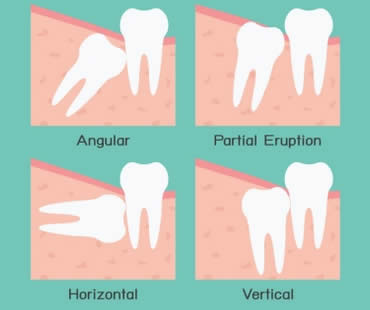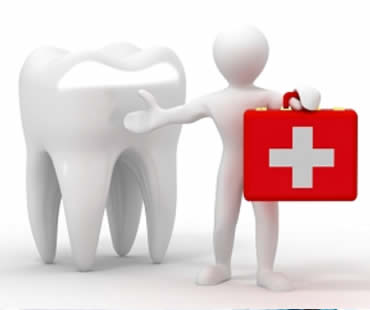
An endodontist is a dentist who has undergone additional training specializing in saving teeth through treatments that involve the pulp and root of teeth. If you have been diagnosed by your family dentist with an infected tooth that requires root canal therapy, it would be logical to seek treatment by a dental professional who is specifically trained in root canal procedures. To find a qualified endodontist for your root canal treatment, consider the following:
- Ask for a referral from your family dentist to an accredited diplomate of the American Board of Endodontics. You may also consider asking friends and family members who have undergone root canal therapy for recommendations of endodontists.
- Inquire about the extent of the endodontist’s education and training as well as the number of root canal procedures they have performed. You will want to look for a doctor with an established practice and extensive track record of root canal experience.
- Find out what type of equipment the doctor utilizes to ensure they are up-to-date on the most recent advances in endodontic therapy and dental technology.
- Ask about the sedation and pain-relief options the endodontist provides for root canal patients.
- Evaluate the endodontist and staff to determine if they make you feel comfortable, welcome, and are able and available to answer your questions.
Root canal treatment can be a stress-free and painless experience when performed by the right dental professional. Taking the time and effort to identify a qualified endodontist will help to ensure the ease and success of your procedure, and soon have you back on the road to a healthy smile.
Root canal dentist in Sicklerville

Often, advertising for cosmetic dentistry focuses on women. Photos in magazines and on Web sites show attractive females with gorgeous smiles. Although these campaigns often target women, men can benefit from cosmetic dentistry too.
Professionally and personally, men have just as many reasons as women do to look their best. Your smile is one of the first things people notice about you. Having a vibrant, white smile can create a perception of self-assurance, intelligence, and warmth. Men who have cosmetic dental enhancements can enjoy the benefits of looking younger and feeling more confident.
Though you can opt for a total smile makeover, you don’t have to change everything to update your appearance. For a minimal investment, teeth whitening can make you look years younger. If you want to straighten teeth, talk with your dentist about Invisalign clear braces. Porcelain veneers can cover imperfections on front teeth and reveal a gorgeous, new image.
Not only can rejuvenating your smile boost your confidence, but it can also improve your oral health. Crooked teeth are actually harder to clean, which can lead to gum disease or decay. As well, small cavities can lead to the need for crowns or root canals if left untreated.
To enhance your smile, first find a cosmetic dentist you can trust. Talk with friends, relatives, and colleagues to get recommendations. Once you find the right person, schedule a consultation so that you can meet with the doctor and share your ideas. Why wait any longer to enjoy a sensational smile?
Schedule your appointment at our Sicklerville dental office

Wisdom teeth, your third set of molars, are named that because they are the final teeth to erupt. They usually come in between ages 17 to 25, and are located in the very back of your mouth on the top and bottom. Your dentist will examine you to find out if your wisdom teeth are properly positioned and healthy. If they aren’t, your dentist will recommend removal.
How do you know wisdom teeth should be removed?
Some of the signs there is a problem with your wisdom teeth include pain, infection, cysts, gum disease, damage to nearby teeth, and tooth decay. If you experience any of these symptoms, see your dentist for an examination.
What are impacted wisdom teeth?
Sometimes your teeth just don’t have room to grow in properly. They can erupt at angles within your jaw, sometimes even horizontally. If wisdom teeth aren’t able to erupt normally they can become trapped, or impacted, inside your jaw. Symptoms of impacted wisdom teeth are pain, infection, and swelling. When teeth are impacted, they can lead to serious problems. Many dentists want to avoid impacted teeth and therefore remove your wisdom teeth before they erupt or grow too big.
Are there less obvious reasons to remove wisdom teeth?
It’s not always clear when these teeth way in the back of your mouth are causing problems, or might in the future. Many dentists remove them in teens or young adults so they don’t cause problems later, or become too firmly planted in the jaw. Also, sometimes wisdom teeth are removed as part of orthodontic, periodontal, or restorative treatment plans.
What happens if I don’t have them removed?
Some dentists prefer to wait and see what happens with time to your wisdom teeth. Make sure you continue to have these teeth monitored, because the risk of problems doesn’t go away with age. Removing wisdom teeth isn’t always necessary, because if there’s room in your mouth and they come in properly, they work just like any other teeth. The key is to watch them to make sure problems don’t arise in the future.
Dental office for wisdom teeth removal

When you don’t have a full smile, your self-esteem and oral health decline. Implant restorations offer a solid solution for patients who have lost teeth. Designed to look and feel like your natural teeth, dental implants will rejuvenate an incomplete smile. Dental implants allow you to eat the foods you love, speak clearly, and laugh with confidence.
Constructed from biocompatible titanium, a dental implant is a small metal post surgically inserted into your jaw bone. The implant creates an artificial tooth root. Eventually, a permanent crown is placed on the post, restoring the function and appearance of your smile.
Although you can replace missing teeth with dentures or crown and bridgework, dental implants offer several advantages, including:
• Durability
• Longevity
• Natural Appearance
• Stability
Before suggesting dental implants, your dentist will evaluate your mouth and oral health to make sure you are a good candidate for implants. If you don’t have sufficient bone structure to support the implants, your dentist may suggest a bone graft. In most cases, dental implants have a 95 to 98 percent success rate.
With implant therapy, an oral surgeon or prosthodontist will position one metal post in each empty socket. Implants can replace one or more missing teeth. Once your mouth heals and bone fuses with the biocompatible post, your dentist will attach a lifelike prosthetic crown. Care for the implants as you would your natural teeth, brushing twice daily, flossing frequently, and visiting the dentist for routine checkups.
Dental implants dentist in Sicklerville

Also called third molars, wisdom teeth are the last set of teeth to erupt. Usually, people get their wisdom teeth in during their late teens and early 20s. Although some individuals have no trouble with their wisdom teeth, many people end up having these teeth removed because they may become impacted and create dental health issues. Learn more about wisdom teeth with this Q and A:
Do I need to have my wisdom teeth removed?
If your wisdom teeth aren’t causing problems, you can leave them alone. Typically, wisdom teeth are crooked or impacted, which can generate problems with the surrounding teeth. Also, wisdom teeth can be harder to keep clean, so the risk of decay on these teeth is higher.
When should I have these teeth taken out?
For optimal results, most dentists recommend wisdom teeth removal for patients when they are between 16 and 22 years old. The formation of the roots isn’t complete, so you have fewer complications.
Are there any risks?
As with any surgery, you can have issues arise, but the biggest concerns are nerve damage and dry sockets. Older patients have a greater chance of nerve damage because the root has more fully developed. Dry sockets occur when the post-surgery blood clots dislodge.
Does my age matter?
Some adults don’t experience any symptoms until they are in their 30s, 40s, or 50s. You can have these teeth extracted at any point, but when you get older, surgery is more difficult and the recovery takes longer. If you have trouble with your wisdom teeth, contact your dentist right away for a complete exam.
Sicklerville dental office for wisdom teeth – Lakeside Dental Cosmetic & Family Dentistry

As much as you hope it doesn’t happen, dental emergencies can sneak up on you. Some clinics offer emergency dental care to provide quick, effective, and safe treatment. It’s important to know what kinds of dental problems require urgent care, as opposed to those that can wait until you can get a regular appointment with your dentist. Here are some common types of emergencies that warrant immediate treatment.
Severe toothache
A painful toothache that won’t go away should not be ignored. These can occur suddenly, be confined to a single area, cause pain when eating, and also involve your gums. Symptoms like these may indicate an abscess, which can also lead to facial swelling. Sometimes your airway can even become blocked. A severe toothache requires immediate relief, and therefore is considered a dental emergency.
Excessive bleeding
If you have oral bleeding from something like losing a tooth and you can’t get it under control, you need to see an emergency dentist. Normally when a tooth falls out, the bleeding will stop after a few minutes. If the blood won’t clot for some reason, or if there was severe trauma, excessive bleeding can occur. A dentist can help stop the bleeding by applying pressure, using a hemostatic agent, or even using stitches.
Fractured teeth
Infection may occur when a tooth is fractured, especially if the break goes deep into a permanent tooth, so immediate care is necessary. An emergency dentist will apply dentine padding to the affected area, so that you can visit your own dentist the next day for further treatment.
Surgery complications
If you have had oral surgery and the pain is more severe or lingering than your dentist anticipated, you should seek treatment immediately to make sure complications like a dry socket or jaw fracture hasn’t occurred.
If you have a dental emergency, contact our Sicklerville dentists office.












